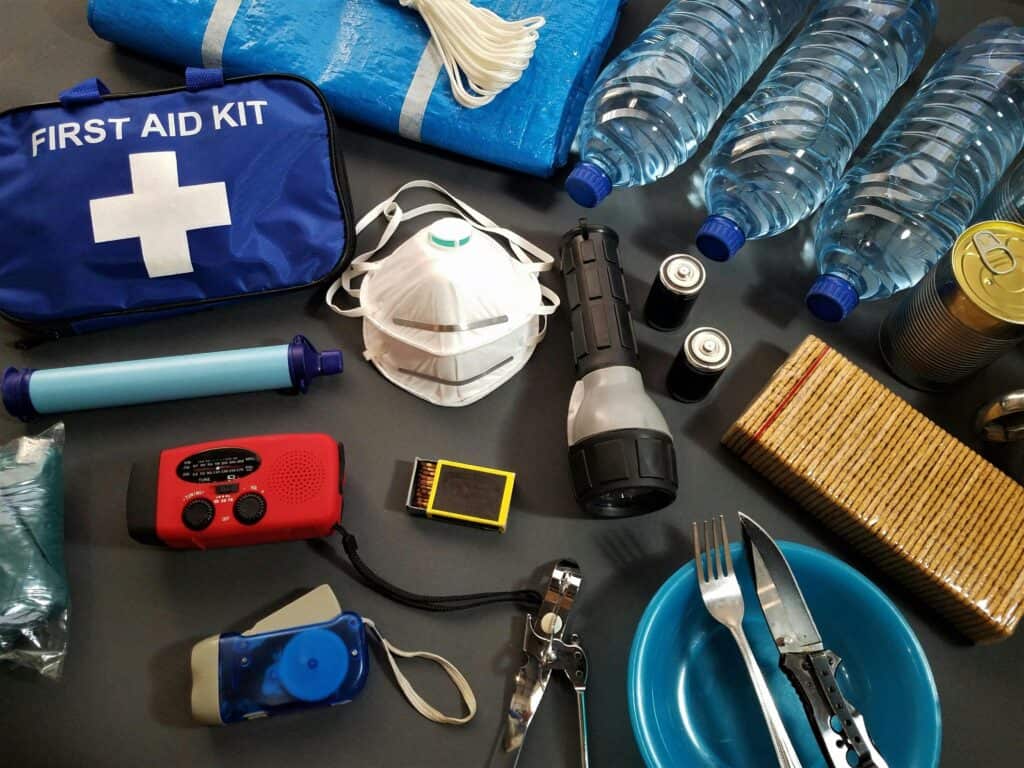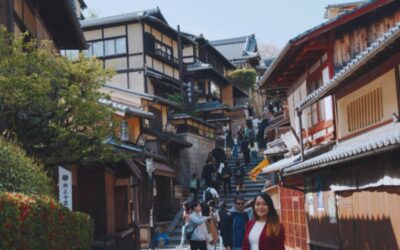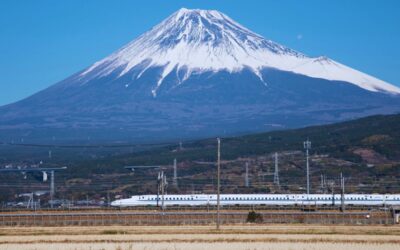It’s no secret that there are a lot of earthquakes in Japan. The island nation is located where tectonic plates converge, resulting in the frequent shaking we know as earthquakes. Most of the time, these are small earthquakes—so subtle that you may even think you’re imagining it (but the swaying curtains or hanging clothes assure you that you’re not). Let’s take a look at earthquake safety, what to do during an earthquake, and how to prepare an emergency kit for earthquakes in Japan.
However, Japan also has a history of intense earthquakes, the most recent in many people’s memory being the 2011 Tohoku earthquake, which also caused a tsunami and a subsequent nuclear meltdown—a triple disaster. The area was completely devastated, and 29,000 people lost their lives (LiveScience, 2011). The nuclear radiation still affects people in those regions today, as evidenced by the increase in cancer patients. It’s no exaggeration to say that Japan is still recovering from this tragedy.
Locals often remark that Japan is due for another big earthquake soon. As someone who isn’t used to earthquakes in Japan, I find that terrifying. After all, the ground literally shaking beneath your feet is something to take seriously, and it’s important to be prepared.
What to Do During an Earthquake in Japan
When a larger earthquake occurs, a loud alarm goes off on your phone. When I say loud, I mean loud. A recorded message in Japanese will alert you that an earthquake is about to hit and instruct you to prepare. These alerts usually go off seconds before the earthquake itself, and those seconds are crucial to your survival during a large-scale event.
Immediately move away from any windows, as the glass is prone to shattering. Open the door in case it gets damaged while closed, which could prevent you from opening it later. Finally, get under a sturdy table to protect yourself from falling objects. In a worst-case scenario, even a blanket can offer some protection from debris.
Stay under your safe spot until the shaking has completely stopped.
Resources to Prepare for Earthquakes in Japan
Download the Disaster Preparedness Tokyo App for alerts. It notifies you when an earthquake has occurred, where it hit, and its magnitude. The app will even show you the nearest evacuation centre based on your GPS location, which is very helpful in emergencies. The app is available in English, so there’s no need to worry about a language barrier.
If you’re proficient in Japanese, you can also follow the Twitter account Jishin Jouhou (地震速報, Earthquake Information), which tweets immediately when an earthquake has occurred.
Preparing an Emergency Kit for Earthquakes in Japan

In worst-case scenarios, the power may go out, and water supplies could be disrupted. To prepare for this, it’s essential to have a safety emergency kit for earthquakes in Japan. Creating one isn’t expensive, and it doesn’t take up much space in your home.
Emergency kits in Japan may vary depending on individual health needs, dietary restrictions, and other factors, but here are the basics:
- Helmet: Many sources recommend having a safety helmet on hand for earthquakes in Japan. This can help protect your head from debris during the event.
- Non-perishable food: Stock up on canned goods like tuna, spam, beans, and soup. Opt for cans that don’t require a can-opener.
- Water: Keep several 1.5-litre bottles of water. If you have a bathtub, clean it thoroughly and fill it with water after an earthquake hits. This water can be used for washing if the water supply is disrupted.
- Tissues/Toilet Paper: As we’ve learned from the pandemic, toilet paper is one of the first things to run out in a crisis, so keep a few rolls at home.
- Important Documents/Items: Gather your passport, residence card, insurance card, hanko stamp, keys, and any other documents that would be difficult to replace.
- Flashlight: If the power goes out, a flashlight will be invaluable. There are many compact, pocket-sized options available.
These are just the basics, but having them on hand will make you feel much safer and better prepared.
Why You Need to Be Prepared for Earthquakes in Japan
If you’re in Japan long enough, you’re bound to experience an earthquake. Recently, there has been an increase in small earthquakes, sometimes more than one in a week. It’s essential to remain calm and follow the instructions given by the Japanese government or your embassy.
Do you have any stories of when you felt an earthquake? Any other tips on how to stay safe when one hits?
Stay tuned for more information about Japan travel, Japanese culture, moving to Japan, living in Japan, Japanese language and more.











